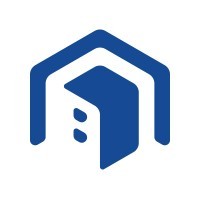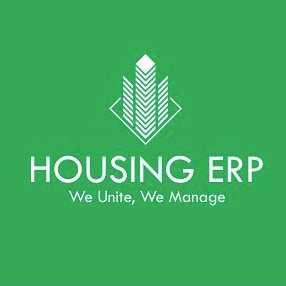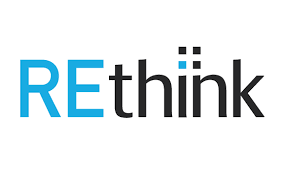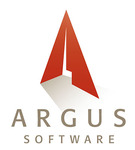The majority of commercial real estate software is compatible with a variety of platforms and devices. This covers operating systems including Windows, iOS, and Android in addition to desktop, laptop, tablet, and smartphone computers. For real estate professionals who need to keep organized and connected while working, this makes it easier for users to access their data and software while on the go.
List of 20 Best Commercial Real Estate Software
VAL is a real estate modeling solution! Designed with a user-friendly interface and accessible through the cloud, VAL delivers precise discounted cash flow analyses for precise valuations. Our software seamlessly integrates with other systems, guaran...Read More VAL
SharpLaunch is a marketing solution specifically designed for commercial properties, utilized and trusted by asset managers and brokers. This powerful tool streamlines marketing efforts and maximizes property visibility. With SharpLaunch, users can a...Read More SharpLaunch
BuildOut is a software solution for commercial real estate (CRE) professionals. Trusted by top CRE firms, BuildOut streamlines operations with user-friendly features like pipeline reporting, database management, and advanced back-office tools. Say go...Read More Buildout
HOUSING ERP is a cloud-based solution designed to address the unique challenges faced by Housing Societies. With its advanced features and real-time accessibility, this web-based platform efficiently streamlines key processes and improves overall eff...Read More Housing ERP
Discover the power of Affinity, the AI-powered commercial real estate relationship management software. From simplified communication and advanced scheduling capabilities to valuable insights, Affinity streamlines your business processes. Experience...Read More Affinity.co
Forbury is a commercial real estate valuation software that sets the standard for owners and agents. Its advanced features include cash flow analysis and portfolio management, all accessible through a user-friendly interface. With excellent support a...Read More Forbury
Reonomy - the state-of-the-art commercial real estate solution driven by AI technology. Gain valuable insights and make informed decisions with our versatile features, customized to fit your unique requirements. Stay ahead of the competition by tryin...Read More Reonomy
VTS - View The Space is a top-notch asset management platform for the commercial real estate industry. Our comprehensive software has been proven to reduce deal cycle time by 41%, making it the perfect solution for marketing teams. With over 35,000 u...Read More VTS - View The Space
redIQ is a software solution for multifamily property analysis. Our advanced platform efficiently organizes and evaluates deal documents to support accurate underwriting. Trusted by top professionals in the industry, redIQ empowers users to make info...Read More redIQ
CommercialCafe is a software for seamless property management. With its user-friendly interface, it simplifies administrative tasks and offers intuitive features for lease tracking, communicating with tenants, and managing maintenance requests. Eleva...Read More CommercialCafe
MyEListing: solution for streamlined commercial real estate listings and discovery. With our free and user-friendly platform, access an abundance of market data, demographics, and expert resources to find the perfect space for your businesss success...Read More MyEListing
Rethink is a Business Management Software and Real Estate CRM for Residential and Commercial firms. Our extensive platform caters to the specific needs of every member of your organization, from deal tracking to contact and property management. As so...Read More Rethink
TheAnalyst PRO solution for commercial real estate professionals. This cutting-edge software offers advanced features and a user-friendly interface to streamline investment analysis, lease comparisons, and demographic insights. Elevate your productiv...Read More TheAnalyst PRO
redIQ is a multifamily deal document software that streamlines and evaluates complex underwriting processes with unparalleled precision. Renowned in the industry for its efficiency and accuracy, redIQ empowers investors, brokers, and lenders to make...Read More redIQ
Valcre is software specifically designed for commercial real estate appraisals. With customizable report building and efficient activity tracking, Valcre streamlines and organizes the appraisal process. Its cloud-based database ensures easy storage o...Read More Valcre
LoopNet is a premier online marketplace that focuses on bringing together buyers, sellers, and tenants of commercial real estate properties. Our platform offers a diverse selection of listings for various commercial spaces, including offices, retail...Read More LoopNet
AscendixRE, the premier commercial real estate CRM powered by Salesforce. Manage your business with ease, from lease tracking to prospect lists and lead generation. With a full view of your operations and effortless reporting and brochure creation, A...Read More AscendixRE
Origin is a top-notch real estate investment management software that offers comprehensive data analytics. Its advanced features empower acquisition teams to quickly evaluate and secure deals, giving them a competitive advantage. By streamlining the...Read More Origin
ARGUS Enterprise is a leading real estate software that streamlines asset and portfolio management processes. Its robust analytics, seamless data integration, and advanced reporting tools give users the confidence to make strategic decisions and maxi...Read More ARGUS Enterprise
Quarem is a lease management software, designed to simplify and enhance property management processes. Our integrated platform allows for easy management of leases, projects, reports and assets, all in one convenient location. Request a demo on our w...Read More Quarem
Learn More About Commercial Real Estate Software
- What Is Commercial Real Estate Software?
- What Are The Recent Trends In Commercial Real Estate Software?
- Benefits Of Using Commercial Real Estate Software
- Important Factors To Consider While Purchasing Commercial Real Estate Software?
- What Are The Key Features To Look For In Commercial Real Estate Software?
- Why Do Businesses Need Commercial Real Estate Software?
- How Much Time Is Required To Implement Commercial Real Estate Software?
- What Is The Level Of Customization Available In Commercial Real Estate Software?
- Which Industries Can Benefit The Most From Commercial Real Estate Software?
- Conclusion
What Is Commercial Real Estate Software?
Commercial real estate software is a specialized application that helps manage and analyze commercial properties, leases, and other real estate assets. This sort of software provides a wide range of features and functionalities to help streamline and automate the many duties and procedures involved in commercial real estate transactions.
At its foundation, commercial real estate software serves as a consolidated platform for collecting and managing critical property information such as tenant information, lease terms, financials, and maintenance records. This enables real estate professionals to gain a thorough perspective of their properties and make informed decisions based on accurate and up-to-date information.
Lease management, budgeting and forecasting, financial analysis, portfolio tracking, and document management are some of the important features to look for when purchasing commercial real estate software. These capabilities significantly boost efficiency and assist users in staying on top of chores connected to lease negotiations, tenant interactions, financial planning, and property upkeep.
Furthermore, commercial real estate software frequently connects with other business tools, including accounting systems, customer relationship management (CRM) software, and enterprise resource planning (ERP) solutions. This guarantees that data flows seamlessly across several platforms and eliminates the need for manual data entry, saving time and eliminating errors.
In addition to the elements listed above, some commercial real estate software has additional capabilities including data visualization, scenario modeling, and performance benchmarking. These features are especially useful for investors and larger businesses who want to assess and optimize the performance of their real estate portfolio.
When choosing commercial real estate software, it is critical to assess your company's specific demands and goals in order to select the best software that meets your expectations. This includes characteristics such as portfolio size, property type, and budget. It is also critical to seek for a user-friendly interface, reliable customer service, and regular upgrades to provide a consistent user experience and stay up with changing market trends.
Commercial real estate software allows real estate professionals to manage their properties more efficiently, make better decisions, and ultimately increase their bottom line. With the correct tools, commercial real estate transactions may become more transparent, automated, and profitable for all parties involved.
What Are The Recent Trends In Commercial Real Estate Software?
Commercial real estate software, which combines the power of technology and real estate, has developed as an indispensable tool for real estate agents. As the demand for more effective and simplified procedures in the commercial real estate market develops, software solutions have evolved to match those demands. The following are some recent trends in commercial real estate software that every buyer should be aware of:
1. Cloud-Based Solutions: One of the most significant changes in commercial real estate software is the transition to cloud-based solutions. With cloud technology's accessibility and flexibility, an increasing number of businesses are using cloud-based software to manage their real estate holdings. These technologies enable users to access data and collaborate from any location, making remote property management more convenient.
2. AI And Automation: Artificial intelligence (AI) and automation are other popular topics in commercial real estate software. These technologies are now being utilized to automate operations such as property assessment, market analysis, and tenant screening, allowing real estate professionals to devote more time to strategic duties. AI-powered software can also give predictive data, allowing businesses to make more educated decisions about their properties.
3. Mobile Apps: Mobile apps have become an important component of the commercial real estate software environment. These apps enable users to access essential data and complete activities while on the go, making property management and client communication easier. With the advancement of mobile technology, it is critical for software solutions to be mobile compatible in order to fulfill the needs of busy real estate agents.
4. Integration With Other Systems: In today's digital world, systems and software must work together seamlessly. This is why integration has grown popular in commercial real estate applications. Buyers should search for solutions that are simple to combine with current systems and tools, including as accounting software, marketing tools, and customer relationship management (CRM) platforms. This not only increases efficiency, but also decreases the need for human data entry, lowering the possibility of errors.
5. Data Security: As the real estate sector relies more on technology and data, data security has become a primary priority. Commercial real estate software now includes strong security capabilities to safeguard critical information from unauthorized access or cyber attacks. Buyers should prioritize data security-focused software solutions to secure the protection of their company's and clients' data.
Benefits Of Using Commercial Real Estate Software
Commercial real estate software is a powerful instrument that provides numerous benefits to individuals in the real estate market. Here are the top benefits of employing commercial real estate software for your organization, including reducing procedures, enhancing productivity, and giving important insights:
1. Automates Time Consuming Operations: One of the most significant advantages of using commercial real estate software is the ability to automate time-consuming operations. Data entry, lease tracking, and financial reporting are all tasks that may be completed with a few clicks, allowing you to focus on other critical areas of your business.
2. Improves Efficiency: By centralizing all of your data and processes in one location, commercial real estate software streamlines operations and increases efficiency. This decreases the likelihood of errors and duplicates, resulting in a more structured and simplified operation.
3. Provides Valuable Insights: Commercial real estate software has a variety of reporting and analytical tools that can help you better understand your organization. This information can help you make more educated decisions, discover patterns, and pinpoint areas for improvement.
4. Improves Communication And cooperation: Cloud-based software allows all team members to access the same information in real time, facilitating greater communication and cooperation. This results in smoother transactions and better coordination within your organization.
5. Easy View To Information: Cloud-based commercial real estate software enables you to view your data and reports from any location, at any time. This is especially useful for people who have to work remotely or are constantly on the move.
6. Improves Customer Care: With a consolidated database of all customer information, commercial real estate software allows you to reply to requests swiftly and provide tailored care to your clients. This results in increased customer satisfaction and retention.
7. Configurable Aand Scalable: Many commercial real estate software alternatives provide configurable features to meet the specific needs of your company. Furthermore, if your company grows, the software can simply scale alongside it, delivering a dependable and long-term solution.
Important Factors To Consider While Purchasing Commercial Real Estate Software?
When it comes to purchasing commercial real estate software, purchasers should examine many key considerations before making a decision. Here are the main factors that can help you select the best software for your organization:
1. Industry-Specific Features: One of the first things to look for when selecting commercial real estate software is industry-specific features. Real estate is a complex and highly regulated industry, therefore it is critical to select software that is adapted to your sector's specific needs and objectives. Look for commercial-specific capabilities like property management, lease tracking, financial reporting, and document management.
2. Scalability And Flexibility: As your company expands, your software should be able to adapt to your changing requirements. As a result, it is critical to choose software that is both scalable and adaptable. This implies it can handle more data and users while also adapting to new features and technologies.
3. Integration Capabilities: In today's fast-paced business environment, integration is essential for optimizing workflows and increasing efficiency. When choosing commercial real estate software, be sure it can interface with the other tools and platforms that your company employs. Accounting software, customer relationship management systems, marketing tools, and other items may fall under this category.
4. User-Friendly Interface: No matter how smart or powerful a piece of software is, if it isn't easy to use, it might reduce productivity and adoption rates. Look for software with a straightforward and simple interface that all team members can readily navigate. This will save time and resources while also ensuring a smooth transition for staff.
5. Customization And Customisation Options: Each commercial real estate business is unique, with its own set of needs. That is why it is critical to select software that provides customization and customisation choices, allowing you to adjust it to your exact requirements. This could include branding, templates, workflows, and so forth.
6. Technical Assistance And Training: New users will always have a learning curve, no matter how user-friendly the product is. Look for a software vendor who provides extensive training and technical assistance to guarantee your team can fully exploit the product's potential. This will not only make the adoption process go more smoothly, but will also ensure that any technical concerns are rectified as soon as possible.
7. Security And Data Protection: Real estate transactions sometimes contain sensitive and secret information, which must be kept secure. When reviewing commercial real estate software, make sure it includes strong security features to protect your data from cyber attacks and breaches. This could include encryption, access restriction, and regular data backups. When selecting commercial real estate software, consider these aspects to guarantee that you select a system that meets your company's specific objectives, optimizes processes, and fosters development and success. Remember to consider your budget, software compatibility, and future demands while making a decision.
What Are The Key Features To Look For In Commercial Real Estate Software?
When looking for the best commercial real estate software, there are a few crucial things to consider. These capabilities will not only save you time and expedite your operations, but will also enable you to make educated and smart business decisions. Here are the most important aspects to consider while considering commercial real estate software:
1. Property Management: The first and most important function to look for in commercial real estate software is property management. This includes monitoring lease agreements, tenant information, and rent payments, as well as managing maintenance requests and repair orders.
2. Lease Management: A comprehensive commercial real estate software should include a sophisticated lease management tool that enables you to conveniently store, access, and manage all of your lease agreements. This function should also give you with information about lease expirations, renewals, and significant financial KPIs.
3. Financial Management: Another crucial element to look for is financial management, which entails tracking and managing revenue and expenses, creating financial reports, and budgeting. This tool allows you to acquire a comprehensive knowledge of your cash flow and make data-driven business decisions.
4. Portfolio Management: If you have a large portfolio of properties, you'll need a tool that allows you to manage them all in one spot. A portfolio management function enables you to examine, analyze, and track the performance of your whole portfolio, making it easier to find opportunities for development and expansion.
5. Data Analytics: In today's digital world, data is critical to making strategic decisions. Look for commercial real estate software that includes powerful data analytics tools, such as visual dashboards and reports, to help you obtain insights into market trends, property performance, and more.
6. Customization And Integration: Each firm is unique, and your software should be adaptable to your individual requirements. Look for software that enables for customization and integration with other products and platforms you use to help you streamline your process even further.
7. Customer Support: Even with the most modern equipment, technical glitches and questions may arise. Make sure to select commercial real estate software that provides dependable customer assistance to help you fix difficulties quickly and efficiently.
Why Do Businesses Need Commercial Real Estate Software?
Software for commercial real estate has grown to be a vital resource for companies of all kinds, from start-ups to multinational enterprises. Because the real estate sector is always changing, it is now more crucial than ever for companies to integrate technology into their operations to remain effective and competitive. Software for commercial real estate can help with this.
Effective property management is one of the primary reasons companies require commercial real estate software. Businesses may simply monitor and manage their real estate portfolio, which includes properties, leases, and renters, with the use of this kind of software. A centralized database removes the need for manual data entry and paperwork, allowing organizations to quickly access information and make well-informed decisions.
Additionally, using commercial real estate software can greatly increase a company's overall operational effectiveness. Businesses may focus on other essential aspects of their operations by saving time and money with services like automated lease generation and rent tracking. This lowers the possibility of human error while also increasing productivity.
The capacity of commercial real estate software to give companies real-time information and analytics is another essential feature. Businesses may examine patterns and make data-driven decisions for their properties with the help of sophisticated reporting tools. Businesses can use this to find ways to increase the profits on their real estate investments.
Additionally, a variety of collaboration and communication tools are provided by commercial real estate software. This facilitates communication and builds deeper connections by making it simple for companies to interact with their contractors, tenants, and other stakeholders. The accessibility of remote access to property information and documents is another benefit that commercial real estate software provides in light of the growing popularity of remote work and virtual teams. This makes property management more accessible and convenient by doing away with the requirement for physical presence.
All things considered, companies use commercial real estate software to increase operational effectiveness, expedite property management procedures, make data-driven decisions, and promote improved stakeholder engagement and communication. Businesses may boost their bottom line and save time and money by investing in the proper software.
How Much Time Is Required To Implement Commercial Real Estate Software?
Depending on the particular software and your company's requirements, the amount of time needed to integrate commercial real estate software can change. The installation procedure often takes a few weeks to many months. Assessing your present procedures and determining where the software can improve operational efficiency is the first stage in putting commercial real estate software into place.
Depending on how complicated your firm is, this could take a few days to a week. The installation and configuration procedure can take a few days to a few weeks once the software has been chosen. This include importing data, creating user accounts, and modifying the program to meet your company's requirements. An essential part of the implementation process is teaching your team how to utilize the program efficiently.
Depending on the size of your team and their experience with comparable software, this could take a few days to a week. It's crucial to remember that the amount of time needed for installation also depends on how much help the software supplier offers. Personalized onboarding and training are provided by certain providers, which helps expedite the implementation process.
Your staff may need some time to get used to utilizing the program in their daily work following the initial setup and training. Depending on your team's acceptance rate and learning curve, this could take a few weeks to a month. In order to guarantee a seamless transition and appropriate use of the software's functionality, it is often advised to allot a few months for the implementation process. Commercial real estate software has the potential to significantly improve your company over time with the right preparation and assistance.
What Is The Level Of Customization Available In Commercial Real Estate Software?
Users can modify commercial real estate software to suit their own business requirements thanks to its configurable features. Although the degree of customization offered by various software solutions vary, it is a crucial factor for consumers wishing to spend money on this kind of software. Basic customization tools including adding and removing features, modifying data fields, and setting up user rights are available in the majority of commercial real estate software packages.
Users can modify the software to fit their preferences and company procedures thanks to this degree of customisation. Higher levels of customisation, like unique workflows, templates, and dashboards, could be available with more sophisticated software alternatives. This enables customers to streamline their workflow and further customize the software to meet their own company demands.
Some commercial real estate software also provides the opportunity to integrate with other software programs in addition to these customisation choices. By connecting their favorite tools and systems, users can further customize their workflows and increase customization. When selecting a commercial real estate program, purchasers should carefully consider the degree of customisation available.
The software can be more specifically adapted to meet their business demands if it has more customization options. Additionally, it enables scalability as companies expand and their requirements evolve. All things considered, the degree of flexibility that commercial real estate software offers can significantly affect how beneficial and successful it is for the user. When weighing the customization possibilities of various software solutions, buyers should give serious thought to their own business requirements and preferences.
Which Industries Can Benefit The Most From Commercial Real Estate Software?
Large organizations and small businesses alike can benefit greatly from the use of commercial real estate software. This software is essential for any business trying to increase productivity and profitability since it simplifies the intricate procedures involved in managing commercial real estate. The construction sector is among those that stand to gain the most from commercial real estate software.
Construction businesses can effortlessly monitor projects, control budgets, and work together with vendors and contractors thanks to the software's sophisticated project management features. As a result, project delivery deadlines are improved, expenses are decreased, and productivity rises. Retail is another sector that can benefit greatly from commercial real estate software.
Retailers can effectively manage their property leases, keep an eye on their rent payments, and remember crucial dates with tools like lease and contract management, guaranteeing uninterrupted and seamless business operations. The software's analytical features can also give merchants insightful information about their real estate holdings, assisting them in making wise choices regarding their real estate investments.
Software for commercial real estate can also be quite helpful to the hospitality sector. Hotels, resorts, and other hospitality enterprises can effortlessly manage their properties, from guest rooms to event spaces, with capabilities like asset management and space optimization. This leads to better visitor experiences, more productivity, and eventually more revenue.
Additionally, healthcare firms are the perfect fit for commercial real estate software. Healthcare facilities can use this software to simplify their real estate management procedures and guarantee compliance with stringent rules and intricate leasing agreements. This frees them from the burden of managing their properties and enables them to concentrate on giving their patients high-quality care.
The banking and financial sector is another one that can profit from commercial real estate software. Banks and other financial organizations may simply monitor their real estate investments, spot possible hazards, and make data-driven choices with the software's extensive analytics and reporting features. In the end, the usage of specialized software can be advantageous for any industry that works with commercial real estate.
Commercial real estate software offers a comprehensive solution for managing assets, leases, and finances that can boost profitability while saving time and money. When selecting the best commercial real estate software for your company, take into account the particular demands and specifications of your sector to fully reap the rewards.
Conclusion
In conclusion, every company or investor hoping to efficiently manage their property portfolio must select the appropriate commercial real estate software. It might be difficult to choose the software that best suits your demands and budget with the abundance of features and options on the market. It's crucial to thoroughly consider your needs before making a purchase and to compare the salient features of each software, including ease of use, scalability, data management, integration capabilities, customer service, and pricing options.
1Before making a choice, we advise doing extensive study and evaluating several software solutions. This will assist you in better comprehending the capabilities of the software and how it can support your business objectives. To learn more about the software's functionality and client happiness, you should also think about reading reviews and asking other real estate experts for advice.
Purchasing the appropriate commercial real estate software can significantly improve the effectiveness of your property management, expedite your business processes, and eventually boost your earnings. Thus, give your options a thorough evaluation and make a well-informed choice that will ultimately help your company.
Commercial Real Estate Software FAQ's
Can Commercial Real Estate Software Be Accessed Across Multiple Devices And Platforms?
Is Commercial Real Estate Software Future-Proof And Adaptable To Emerging Technologies Like Ai, Blockchain or Iot?
Yes, the majority of software for commercial real estate is made to be flexible and future-proof, able to adjust to new technologies like blockchain, artificial intelligence, and the Internet of Things. Given how quickly technology is developing, software firms recognize how critical it is to stay up to date and adopt new developments in order to maintain their competitiveness in the market.
To keep its software current and innovative, many businesses provide frequent updates and enhancements. Furthermore, some software even makes use of AI and machine learning to automate processes and offer insightful data for improved decision-making. Because of its flexibility to adapt to new technologies, commercial real estate software is a useful and necessary tool for companies operating in the sector.
Is There A Free Trial Offered To Assess Commercial Real Estate Software Before Committing?
Since it ultimately depends on the particular commercial real estate software you are interested in, there is regrettably no one-size-fits-all response to this topic. Nonetheless, a lot of software companies do provide free trials for a set amount of time, usually between seven and thirty days. This enables prospective users to try out the software's features and capabilities before committing. To find out if there are any free trial options available, we advise getting in touch with the software provider directly.
Does Commercial Real Estate Software Offer Data Security Features And Meet Regulatory Compliance Standards?
Yes, software for commercial real estate complies with regulatory requirements and has data security measures. To prevent data breaches, this involves steps like data encryption, safe access controls, and frequent data backups. Furthermore, the majority of commercial real estate software conforms with industry standards including the CCPA and GDPR. This guarantees that private information is safeguarded and businesses are adhering to data privacy regulations.
Can Commercial Real Estate Software Integrate Seamlessly With Existing Tools And Platforms?
Indeed, the majority of software for commercial real estate is made to easily interface with other platforms and technologies already in use. This removes the need for manual data entry and enables a more efficient process. Users' productivity and efficiency can be increased by commercial real estate software through interfaces with marketing platforms, finance tools, and CRMs. It is usually advised to confirm compatibility with particular tools and systems by contacting the program developer.






















